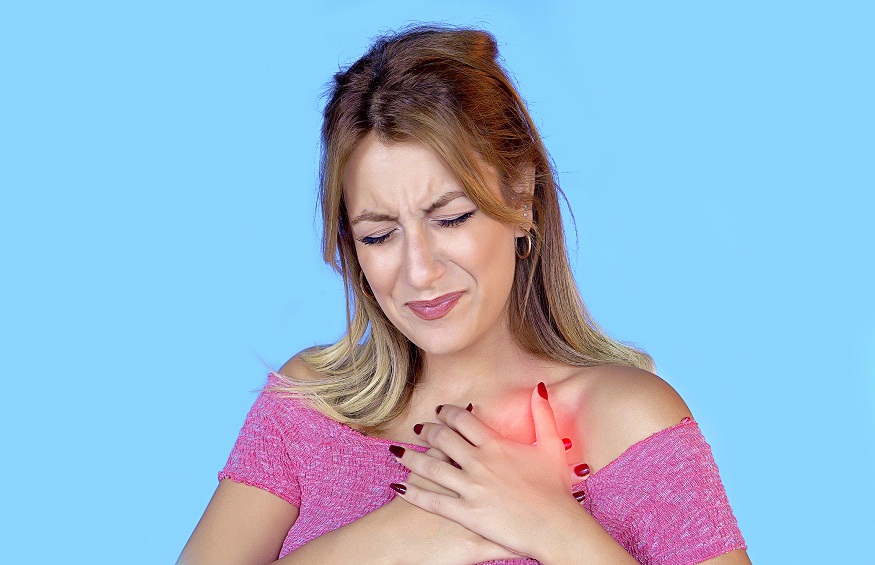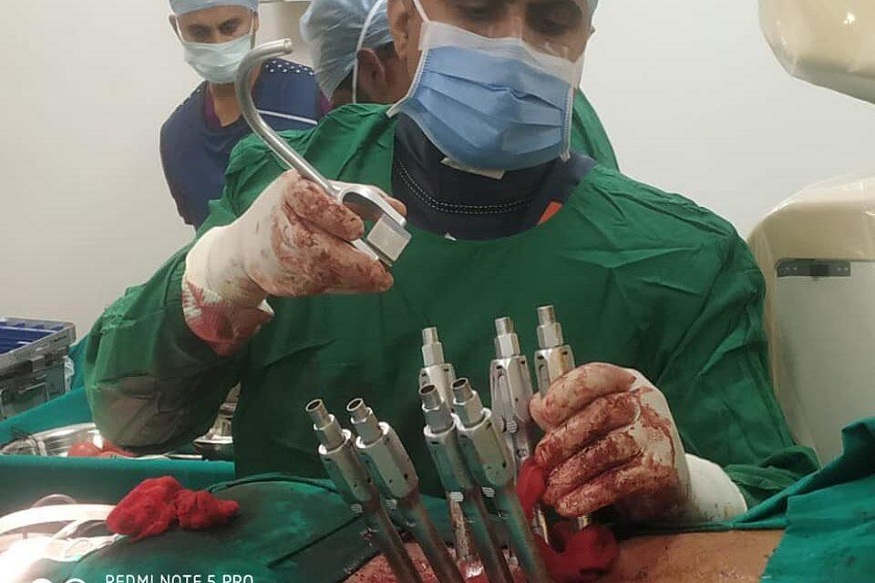Introduction
Heart attack will occur whenever the flow of blood to the heart is blocked. The blockage is often because of cholesterol and other substances which buildup in the form of fat. In the arteries they form a plaque that feeds the heart (coronary arteries).
Sometimes, the blood flow is blocked because of a plaque and can rupture and form a clot. Because of the interrupted blood flow some part of the heart muscle is damaged or destroyed.
Treatment has improved dramatically over the years. Heart attack is also called “Myocardial Infarction.” It is important to call emergency medical help or 911 immediately if you think you might be having a heart attack. In these days Corona virus is spreading like a fire it is best to find Covid free Hospital for heart checkup.
Symptoms
Most common symptoms and signs of a heart attack are:
- Tightness, Pressure, Pain, or an aching or squeezing sensation in your arms or chest that may spread to your jaw, neck or back
- Indigestion, Nausea, Abdominal Pain or Heartburn
- Shortness of breath
- Cold sweat
- Fatigue
- Sudden dizziness
Heart attack symptoms vary
Not everyone suffers from the same severity of symptoms indicating heart attack. Some people have severe pain while others have mild pain. There can be no symptoms for some people too.The greater is the chance that you are having a heart attack if you have more symptoms and signs.
Though some heart attacks strike suddenly, many people experience warning signs and symptoms hours, days, or weeks in advance. The prime warning sign may be a pressure or a recurrent chest pain (angina) that’s activated by activity and relieved by rest. The basic cause for the angina pain is a temporary decrease in blood flow to the heart.
Symptoms can last 30 minutes or longer during a heart attack. These symptoms are not relieved by rest even and unless treated by nitroglycerin by putting it under the tongue.
When to see a doctor
Some people just don’t recognize the important symptoms and signs and wait too long. One should act suddenly and listen if his body is showing any of these signs and symptoms. Following steps should be taken:
Call for emergency medical help
Don’t hesitate if you think that you are having a heart attack. Call on your local emergency number or call 911 immediately. Contact someone who can drive you to your nearest hospital, if you don’t have access to emergency medical services.
If there are no other options only then drive yourself. Driving yourself puts you and others at risk because your condition can worsen.
Take Nitroglycerin
Take nitroglycerin only if it is prescribed to you by your doctor. While awaiting emergency help, take it as instructed.
Take Aspirin
It should only be taken on doctor’s recommendation. By helping to keep your blood from clotting, taking aspirin during a heart attack could reduce heart damage.
Don’t take an aspirin unless recommended by your doctor or an emergency medical personnel as it can interact with other medications. To take an aspirin don’t delay calling 911. At first you should be calling emergency help.
How can you help someone if he is having a heart attack
Firstly call for emergency medical help if you see someone who’s unconscious and you believe is having a heart attack. Then check if the person has a pulse and is breathing. Only begin with CPR, if you don’t find a pulse or a person isn’t breathing.
In a fairly rapid rhythm, push fast and hard on the person’s chest. The compressions should range from 100 to 120 a minute.
Doctors recommend to perform chest compressions only, if you haven’t been trained in CPR. You can go on to rescue breathing and opening the airway if you have been trained in CPR.
Risk factors
The unwanted buildup of fatty deposits (atherosclerosis) can be caused by various factors. It can cause the arteries to narrow down throughout your body. You should work to eliminate all these risk factors, if you want to minimize your chances of having a heart attack.
These risk factors include:
Age
Compared to younger women and men, women who are above 55 years and men who are above 45 are prone to have a heart attack.
Tobacco
This includes long term exposure to secondhand smoking and direct smoking.
High blood pressure
Arteries that lead to your heart can be damaged by high blood pressure over time. Other conditions such as High Cholesterol or Diabetes that occur with high blood pressure can increase your risk even more.
High blood cholesterol or triglyceride levels
Narrow arteries can be caused by a high level of low-density lipoprotein (LDL) cholesterol ( “bad” cholesterol). Related to your diet, it is a type of blood fat known as “Triglycerides.” Their high levels in your blood also increases your risk of a heart attack. Your risk can be lowered if you have a high level of high-density lipoprotein (HDL). It is also known as “Good Cholesterol).
Obesity.
Obesity is related to high triglycerides levels, high blood cholesterol levels, Diabetes, and high blood pressure. It can be lowered by just losing 10% of your whole body weight.
Diabetes
Your blood sugar levels will rise, when your body doesn’t respond to insulin properly. Moreover, it will put you at an increased risk of a heart attack if enough of a hormone is not produced by your pancreas (insulin).
Metabolic syndrome
This syndrome happens when you have high blood sugar, high blood pressure, and obesity. You are twice as likely to develop heart disease if you have metabolic syndrome.





